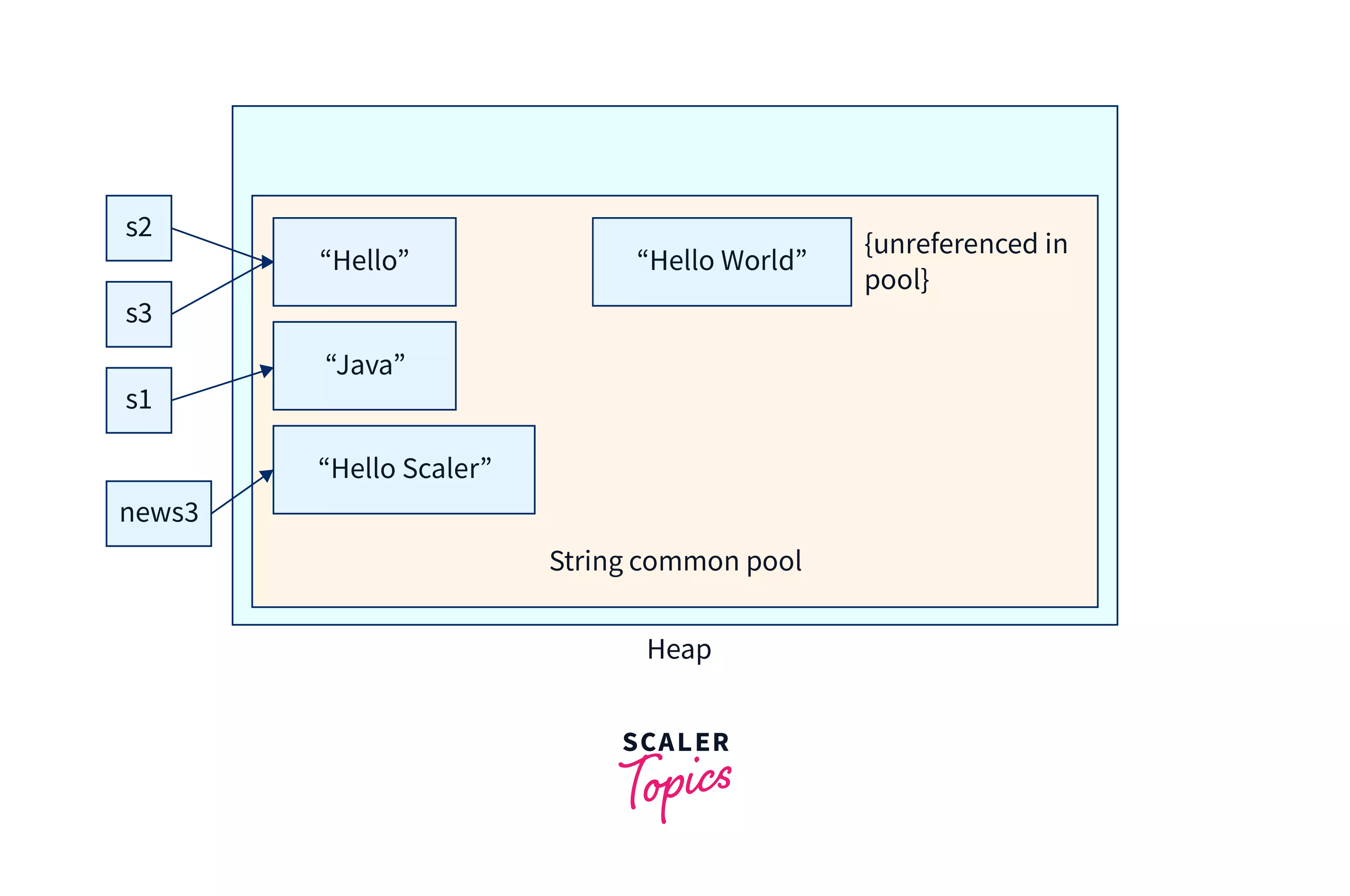Why Are Strings Immutable in Java? Secret Factors and Advantages Explained
What Is Unalterable Strings and Just How It Functions
In the realm of programs, understanding the concept of unalterable strings is extremely important for producing robust and safe applications. Unalterable strings refer to strings that can not be modified after they are created, ensuring data honesty and predictability within the code. This fundamental principle plays an essential function in various shows languages and supplies an one-of-a-kind technique to dealing with information. By checking out the ins and outs of how unalterable strings operate, one can reveal a globe of advantages and possibilities that can raise the top quality and effectiveness of software program growth.
The Essentials of Unalterable Strings
Immutable strings, as a fundamental concept in shows, are personality series that can not be changed as soon as they are produced. This implies that once a string is designated a worth, that worth can not be altered. In languages like Python and Java, strings are immutable items, bring about various effects in terms of memory monitoring and information stability.
Among the essential benefits of unalterable strings is that they give a feeling of safety in information manipulation. Given that the content of an unalterable string can not be customized, it makes certain that the initial information stays undamaged, decreasing the risk of unintentional modifications during program implementation (Why are strings immutable in Java?). This property also simplifies debugging processes, as programmers can trust that once a string is specified, its worth will not be accidentally changed
When a new string is produced based on an existing one, rather than changing the original string, the brand-new value is saved separately. Generally, recognizing the basics of unalterable strings is crucial for mastering shows concepts and maximizing code efficiency.
Advantages of Immutable Strings
Structure upon the safety and performance benefits of immutable strings, their benefits reach boosting code reliability and streamlining concurrent programming tasks. By being immutable, strings can not be changed after development, which gets rid of the risk of unintentional changes in the data they store. This integral immutability ensures that when a string is produced, its worth continues to be consistent throughout the program's execution, minimizing the possibilities of bugs triggered by unexpected alterations.
Furthermore, unalterable strings add to code reliability by making it easier to reason regarding the state of a program. Considering that strings can not be altered, developers can rely on that a string will always hold the exact same worth, streamlining debugging and maintenance initiatives. This predictability brings about more trustworthy and steady codebases.

Implementation in Shows Languages
Within different programs languages, the incorporation of immutable strings is a fundamental facet that affects just how information is managed and manipulated within code structures. The implementation of unalterable strings varies throughout different programs languages, with each language offering its very own mechanisms to sustain this concept.

On the other hand, languages like C and C++ do not have integrated support for immutable strings. Programmers in these languages should by hand execute immutability by imposing regulations within their code to avoid direct alterations to string objects.
Finest Practices for Dealing With Immutable Strings
When handling unalterable strings in programming languages like Java and Python, sticking to best techniques ensures effective and safe and secure data control. Among the essential finest techniques is to utilize StringBuilder or StringBuffer this website rather than directly adjusting strings, especially when handling substantial concatenation operations. These classes provide mutable alternatives for string control, aiding to stay clear of unnecessary memory appropriations and boosting efficiency.
One more ideal practice is to make use of string interpolation or formatting operates provided by the language rather than hands-on concatenation. This not only improves readability however additionally aids in stopping usual challenges such as unintentional string alterations. Furthermore, when dealing with delicate data such as passwords or API keys, it is essential to avoid keeping them as ordinary text in immutable strings. Using safe and secure storage devices like char ranges or specialized libraries for managing delicate info aids alleviate security dangers linked with immutable strings.
Real-world Applications and Instances
Discovering sensible applications of immutable strings in numerous markets exposes their substantial visit site effect on information honesty and system dependability. In the health care market, immutable strings play an essential duty in ensuring the protection and discretion of client information. By protecting against unauthorized alterations to delicate info such as medical records and prescriptions, immutable strings help preserve compliance with strict privacy regulations like HIPAA.
Monetary organizations additionally take advantage of the immutable nature of strings to enhance the safety of consumer data and deal documents. Immutable strings help stop fraudulence and unapproved changes to monetary info, offering a durable defense versus cyber hazards and ensuring the trust fund and self-confidence of customers.

Final Thought
Finally, unalterable strings are repaired and stable series of personalities that use advantages such as string safety and boosted efficiency in shows. They are implemented in different shows languages to guarantee data integrity and safety and security. Ideal techniques for functioning with immutable strings include avoiding straight alterations and making use of techniques that return new string items. Real-world applications of immutable strings consist of data security, caching, and string adjustment jobs.
Unalterable important source strings refer to strings that can not be modified after they are developed, making certain information honesty and predictability within the code. When a brand-new string is produced based on an existing one, instead than changing the original string, the new worth is stored individually.In languages like Java and Python, strings are immutable by default, implying that as soon as a string object is developed, its worth can not be altered - Why are strings immutable in Java?. Best techniques for functioning with unalterable strings include preventing direct modifications and utilizing methods that return new string things. Real-world applications of immutable strings include information encryption, caching, and string adjustment tasks